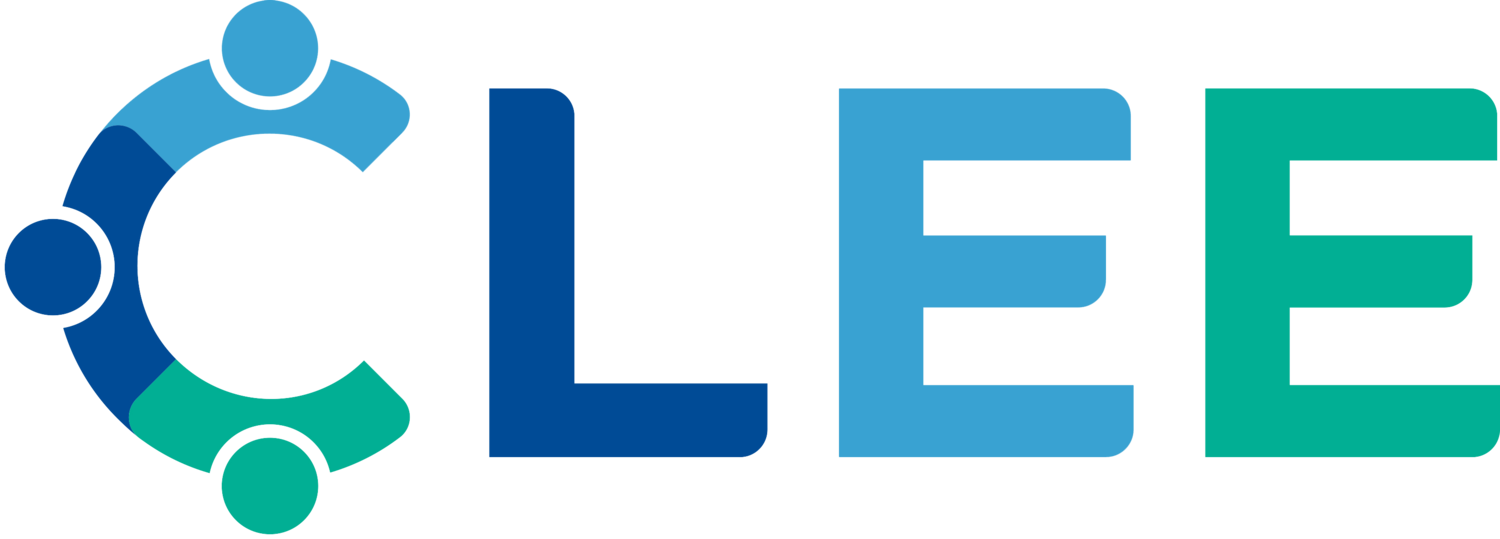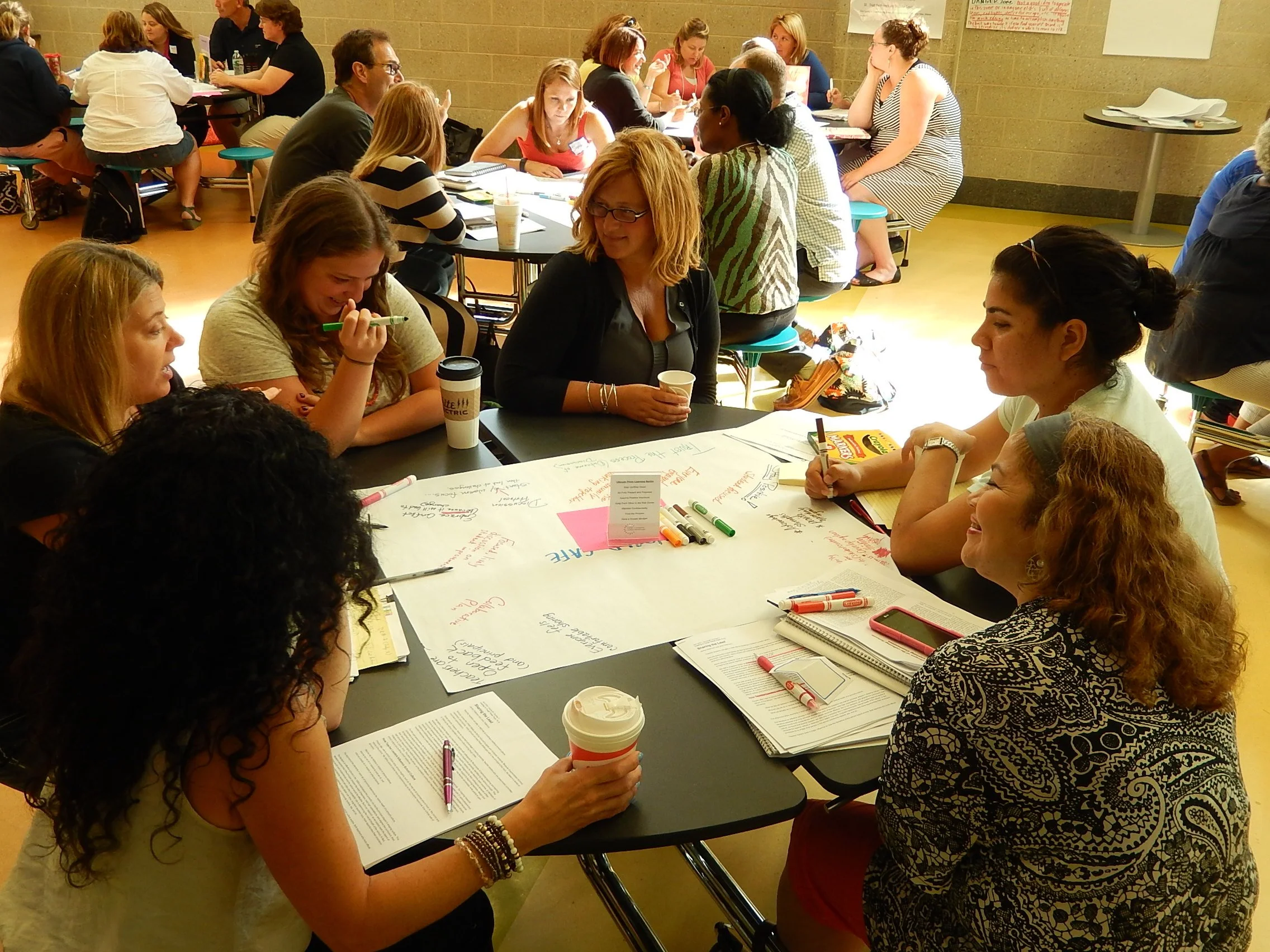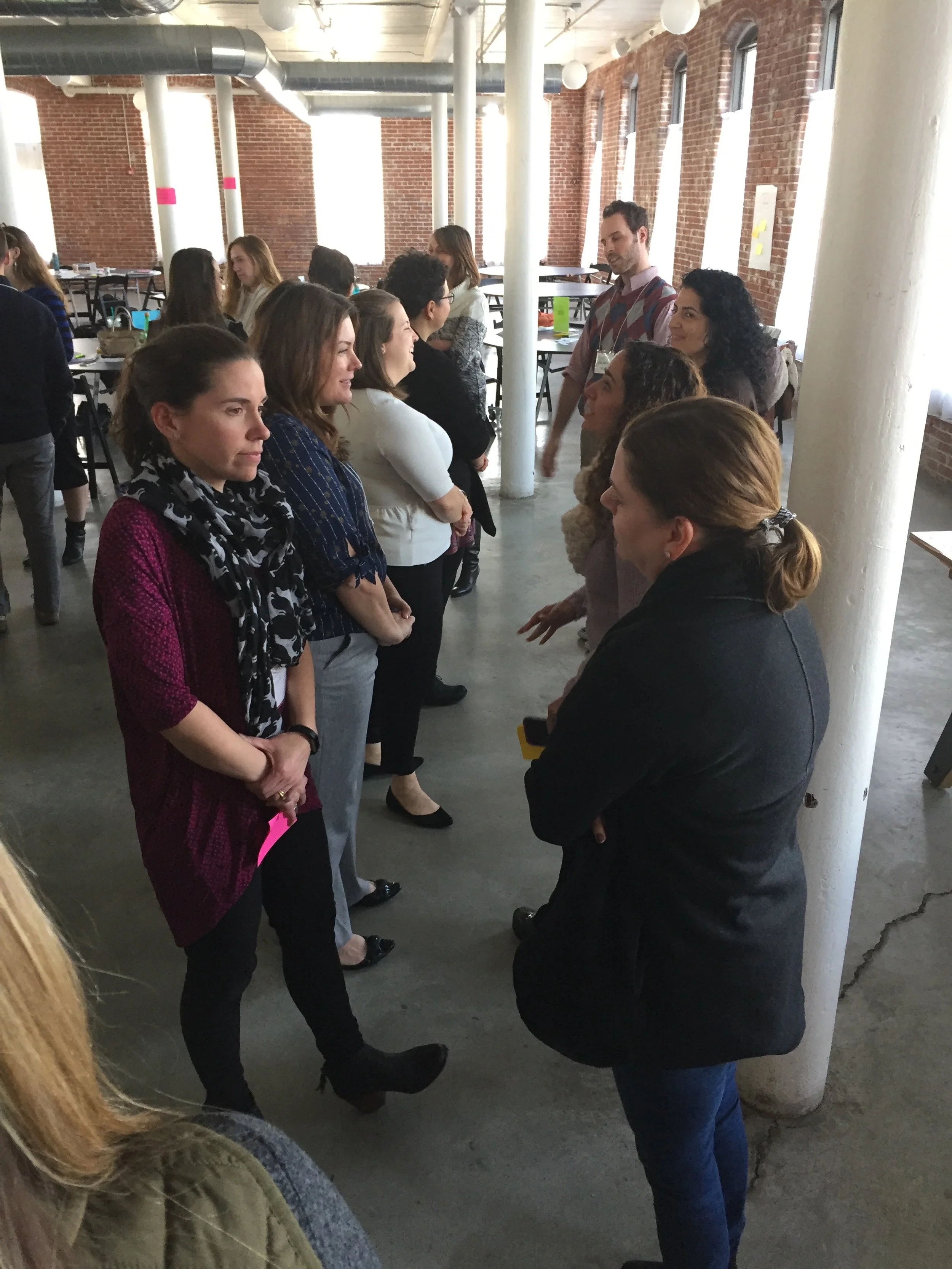October CLEE News - Challenging Each Other for Continuous Improvement
October 2023
Our collective power expands when we support each other to foster the unlimited potential of each and every student.
Just Being Nice Won’t Get You to Your Equity Goals
We start the school year fresh and excited to make progress on the many initiatives aimed at improving outcomes for each and every student. Then, as we begin implementing them, especially the work driving toward increased equity, we may notice in ourselves and others feelings of overwhelm and resistance.
Any effort to break from past mindsets and skill sets puts a lot of pressure on people. It is more than any one of us on our best day can accomplish alone. We need to work together to achieve transformative results, but schools and workplaces often have systems to promote competition over collaboration and judgment of capability over fostering unlimited potential. As a result, people don’t feel safe to be vulnerable and authentic. Colleagues stay in relationships of congeniality rather than collegiality (Sergiovanni, 1996), which inhibits individual and collective growth. See more in the When Nice Won’t Suffice text below.
We see this trend exemplified by responses to our CLEE Learning Community Survey (which measures the degree to which all the adults in a school are enacting Core Leadership Practices that are shown to increase equity in a school). When asked if colleagues are willing to give feedback/speak up when another colleague is not enacting what they have collectively agreed to do together, it consistently gets the lowest score across nearly every school and organization that has ever taken the survey. We all know engaging in this type of productive conflict is hard; however, without it, we will maintain the status quo and all our best plans to increase equity will fall short of what is possible to achieve together.
To avoid this, you need intentional practices that create a safe and brave space for colleagues to continuously get better at collaborating. When this happens, the sense of individual and collective agency blossoms, and school and other communities are able to achieve what otherwise may feel impossible.
Donna Braun, CLEE Executive Director
These intentional practices are often called facilitative leadership or shared leadership, and have been honed by a national community of colleagues for over 30 years! CLEE is honored to foster these practices by building the skills to use tools like our Learning Community Survey, a bank of open-source discussion and feedback protocols, one-to-one coaching, team coaching, and professional learning services and sessions.
Creating a climate where educators feel both cared for and challenged by each other enables you to achieve your community’s key goals and initiatives. Even more powerfully, it directly impacts the students you serve, so each and every one of them feel both cared for and challenged to unleash their unlimited potential.
Staying Low on the Ladder of Inference
Learning from the Equity Leader Accelerator Program (ELAP)
Our new Equity Leader Accelerator Program (ELAP) launched in Massachusetts in August to support new principal mentorship from experienced leaders in their districts. In the first months of this two-year program, we are already seeing an impact.
The cohort began with elements of CLEE’s Foundations in Facilitative Leadership program through network sessions and individual coaching to build capacity and add new collaborative tools to participants’ leadership practices. This interplay between new tools, coaches, principals, and their district mentors is building a fast track to add these practices directly to their daily work.
One tool that our leaders are deploying is the Ladder of Inference (LOI). It is a visual representation of the practice of slowing down your thinking to avoid using assumptions and biases to jump straight to conclusions. By starting with, and focusing on, evidence in a question or dilemma, you can really get to the heart of the matter, expanding your thinking on what actions to take, rather than relying on assumptions to create a solution that does not match root causes.
One ELAP mentor leader shared how he was using the Ladder of Inference in his practice. It was in the forefront of his mind when working with two staff members who were in a challenging conversation. He used questioning, particularly probing questions, to surface their values and beliefs about the situation. This allowed both individuals to know that they were being heard. This experienced leader found that the individuals were getting into the danger zone and used facilitative skills and strategies, including probing questions, so they could recognize each other’s beliefs and perspectives. The probing questions helped them slow down, come down the ladder, see their assumptions, resulting in a positive resolution to a challenging dilemma.
An early career leader I am coaching shared how the role-play example we used to introduce the Ladder of Inference, which incorporates probing questions, gave her immediate insight on how to navigate a current problem she is facing. Her dilemma was with a staff member around student engagement. In using the ladder, she was able to set direction for how to address the problem, first with observations and then by gathering/selecting relevant data prior to forming conclusions.
Cheryl McWilliams, CLEE Continuous Improvement Facilitator and Coach
Both examples show how the Ladder of Inference is a helpful resource to challenge people to work in their risk/learning zone. I invite you to think about how you can use this tool and probing questions in your work.
You can add the Ladder of Inference, probing questions, and other tools to your practice!
If you are in Massachusetts, it is not too late to join ELAP Now! Spaces are also available in our next cycle in 2026. We can also support Facilitative Leadership and Transformational Leadership Coaching in your setting.
Using Observational Data in Setting Direction
As part of our strategic scaling planning, we gathered with volunteers from the nationwide CLEE community last month to complete the SEE part of our SEE, SOLVE, SCALE process with Danny Warshay. We started with the question: what do you SEE? Over the last 2 months, we became researchers in our own settings observing and listening to the people we serve.
We then shared our observations in triads and identified the unmet needs that the observational data pointed to. We identified common needs across our observations using affinity mapping and shared the needs we identified as the highest priority unmet needs.
Now we will consider these unmet needs in each of our settings. CLEE will examine the common priority needs to inform how we scale our support for educators across the country. We now have data we can use to tailor our support and services to urgent needs in education, and are charged to advance our practices and mission.
Become a Leader for Equity in Rhode Island
Join CLEE’s Principal Residency Network (PRN). Not only is it a certification program recognized with distinction by the RI Department of Education, it is one of the longest-running residency-based building leader preparation programs in the nation.
Prepare to become an effective school leader that accelerates equity on behalf of students. Learn more at one of our virtual PRN Info Sessions. You will hear from other educators that took and are currently taking this step to become leaders for equity.
Upcoming Info Sessions
Wednesday, November 1, 2023 4:30 - 5:30pm
Tuesday, January 16, 2024 4:30 - 5:30pm
Tuesday, February 6, 2024 4:30 - 5:30pm
Monday, March 4, 2024 - 4:30 - 5:30 pm
When Nice Won’t Suffice by Elisa MacDonald
Last week I had the opportunity to observe our Principal Residency Network (PRN)’s instructional rounds. We rotated through two schools where we listened to their leadership teams present their school-wide goals, observed their progress through classroom walkthroughs, and reflected on what we observed through the Atlas Protocol. What struck me the most was when we listened to Danira Ortiz, the Principal, Head of School at Nuestro Mundo Public Charter school, reflect on her experience receiving feedback from our PRN leaders. She shared how grateful she was for the feedback, and clarified why she chose to open her doors in September as opposed to June. She wanted the critical feedback at the beginning of the school so that her team could apply it to their practice and get closer to their goals.
I loved hearing Danira reflect on the intention because it really modeled the mindsets underlying Elisa MacDonald’s “When Nice Won’t Suffice.” We need more leaders who are willing to “foster vulnerability-based trust” in order to get the results we need for all students. Too often, educators lose out on “rigorous collaborative discourse” when we prioritize protecting people’s feelings of comfort over challenging our thinking, beliefs, assumptions, and practice. This can happen in so many ways but for our leaders to interrupt these patterns of “nice,” MacDonald calls on educator leaders to recognize the signs, respond proactively as well as in the moment, and follow up.
Jenny Li, CLEE Continuous Improvement Facilitator and Coach
To address the “culture of nice” that keeps people in the comfort zone, leaders must create a safe environment that honors critical feedback, while upholding the goal of collaborative discourse for improving student outcomes. If leaders continue to prioritize the culture of nice, they run the risk of undermining protocols for feedback and encouraging gossip. Let’s face it, educators crave honest discourse, even if they might seem uncomfortable. At CLEE, we push our participants to move themselves into the risk zone, where they can challenge themselves and grow as leaders for equity. As education leaders, keeping our learners and communities at the center of our work means we simply can’t afford to be nice rather than give productive feedback.
School Improvement Is a School-Wide Practice
School Improvement Plans and District Strategic Plans can be an important roadmap for school improvement, but how do you enact them? How do you keep momentum if leaders and/or educators leave or are added year-to-year?
Continuous cycles of improvement can be a path to implement and evaluate a School Improvement Plan. It builds in looking at data to identify next steps and monitor progress. It also leverages the expertise in the school to unpack and solve dilemmas that arise during implementation. The improvement plan can be parsed into short Plan, Do, Study, Act cycles to share the implementation and turn it into smaller changes that can be individually tested. All stakeholders can be engaged in key parts of the process, including the root cause analysis, to ensure that their experiences are front and center when designing for improvement.
Building these practices also protects your momentum from turnover in staff because it creates a shared ownership and skill set that permeates the school. It turns school improvement into a practice that is embedded into the culture of the school, can be transferred to new staff, and strengthens their work as a team. Enacting a School Improvement Plan no longer needs to be on the shoulders of one person that may not stay for its duration, but a shared practice. Continuous improvement is a process that everyone can learn!
One large middle school using continuous cycles of improvement to enact their School Improvement Plan had three principals over the course of 4 years. Because the first principal established continuous improvement as an embedded practice, the school team developed shared ownership that permeates throughout the school. Every single person has a role in this work; it is not owned by a positional leader. They included students, teachers, staff, and leaders. The second and third principals were able to strengthen the work of the existing team and kept it going. Student engagement also helped center the improvement on equity. They said, “In order to change student culture, we need to change adult culture”
CLEE can support you to Lead Continuous Cycles of Improvement to enact your School Improvement Plan or District Strategic Plan.
Each month, CLEE offers a question or two to help you reflect on what you are experiencing. Thinking about the importance of questioning and what your answers mean is one more step in your growth as a leader for equity.
Join CLEE on social media to follow the monthly questions and share your answers.
How do you move from being nice to giving and receiving challenging feedback to create equitable outcomes for each and every student?
The Resource book is back!
The Resource Book is a selection of protocols curated into a spiral-bound book and organized into sections, ideal for both new and experienced practitioners who want easy access to our most popular tools.
















